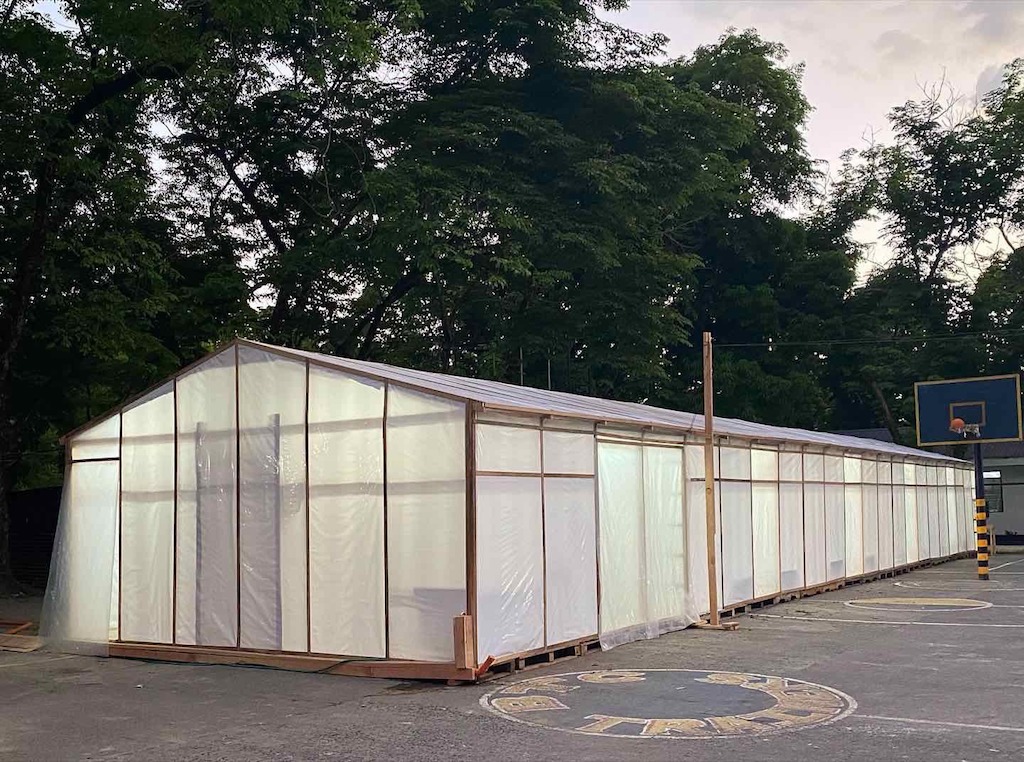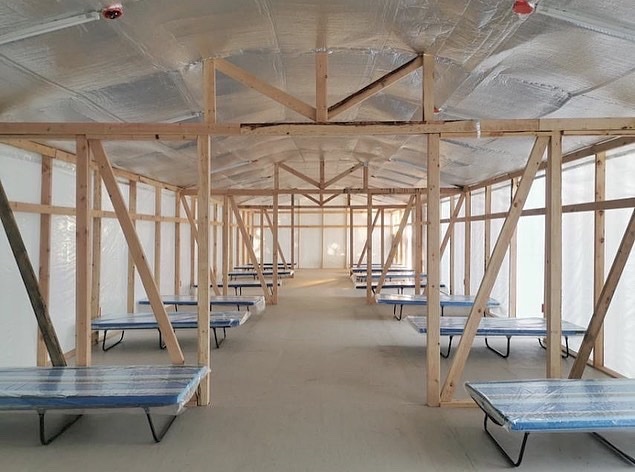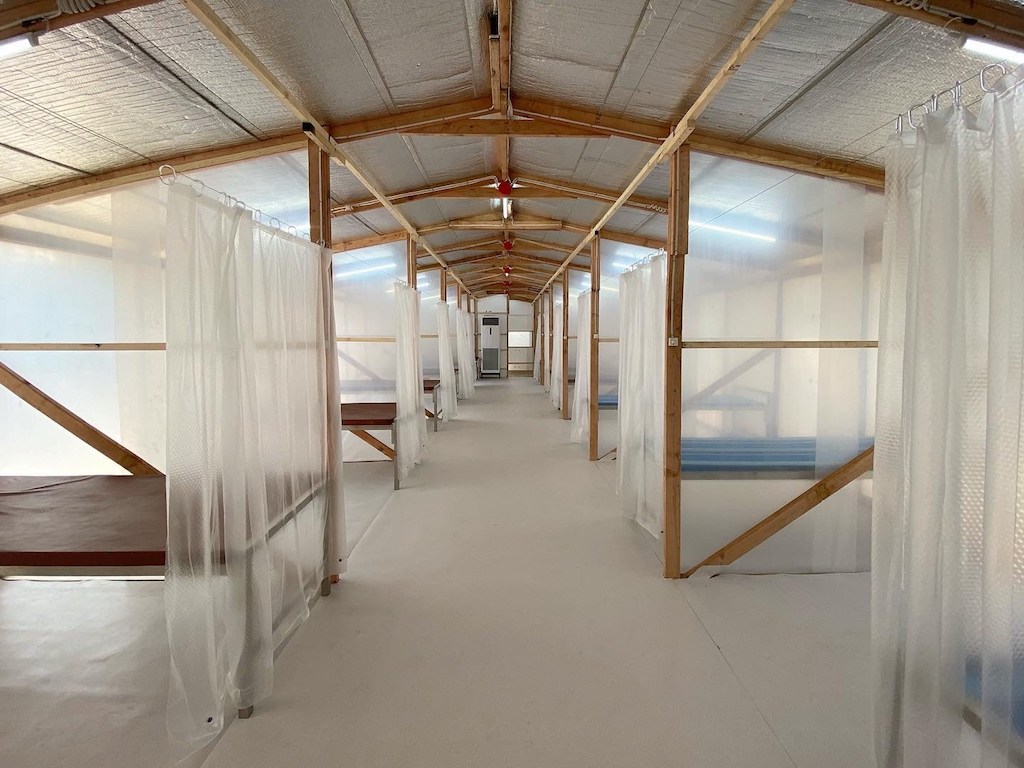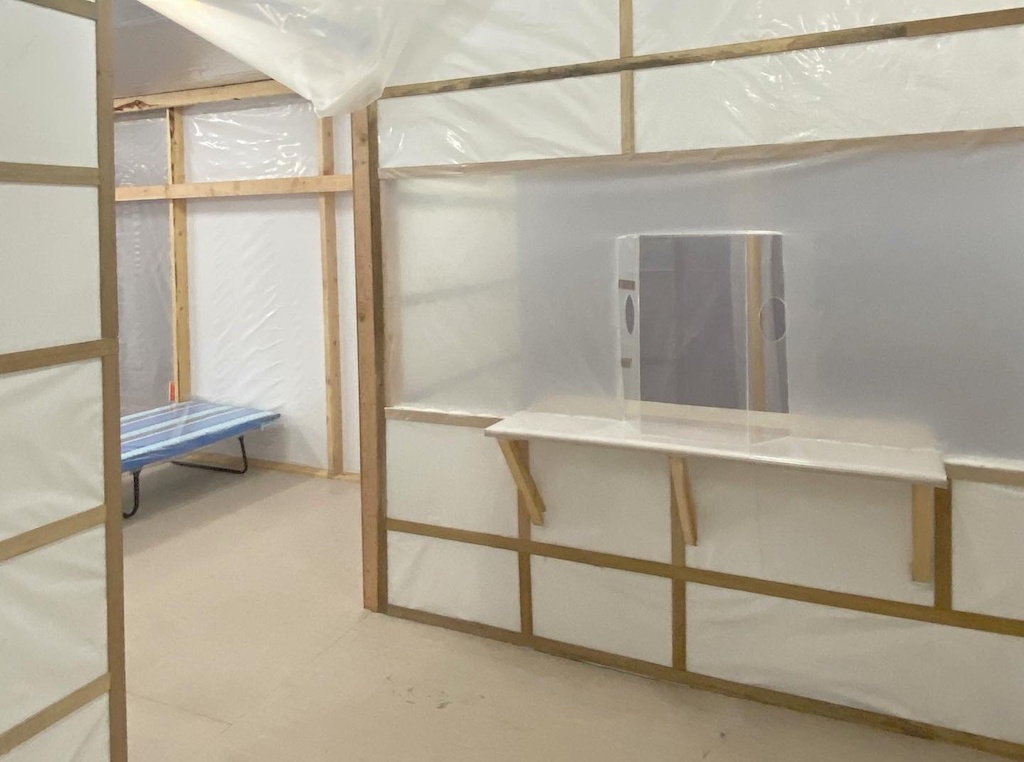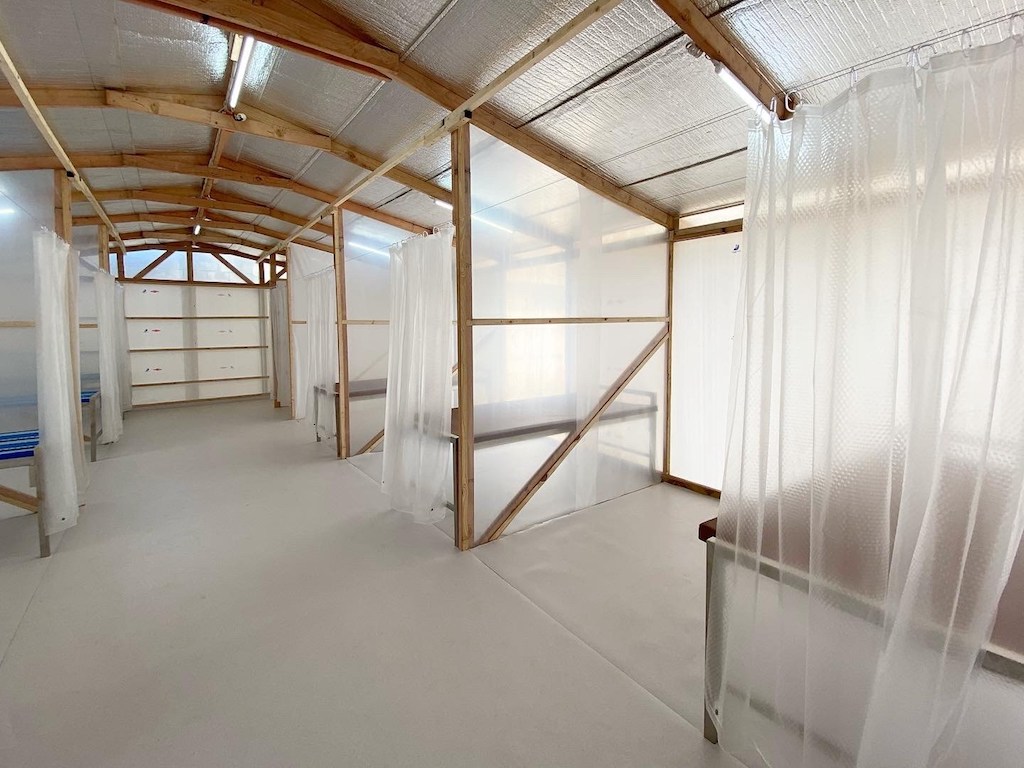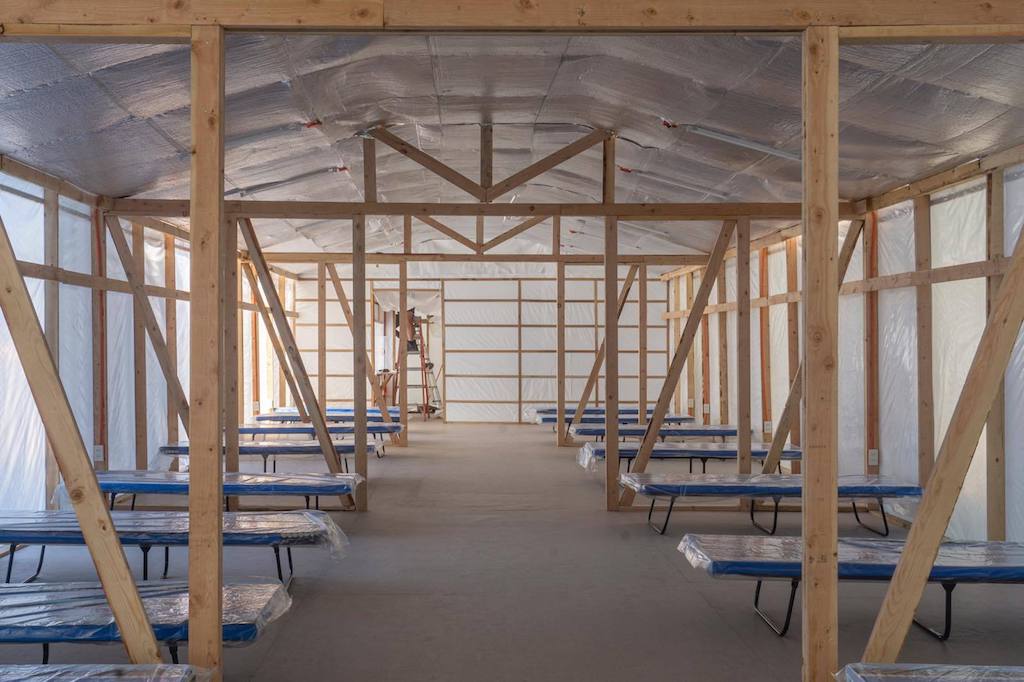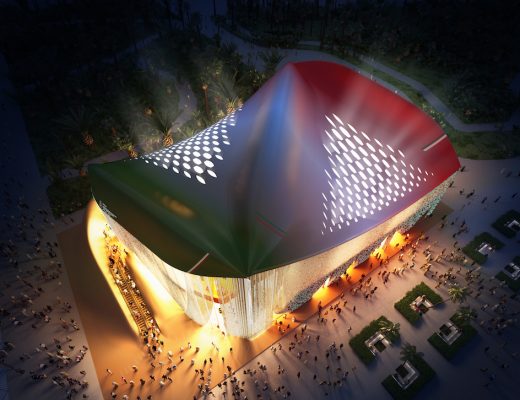With hospitals around the world reaching their capacity, the architecture and design community is proposing new solutions to fight the Covid-19 pandemic.
Philippines-based WTA Architecture and Design practice was inspired by their pavilion developed last year as part of the Anthology Festival to build 60 Emergency Quarantine Facilities (EQF) – a viable quarantine structure, the Boysen Pavilion “embodied speed, scalability and simplicity in its structure”.
Principal Architect of WTA Architecture and Design Studio William Ti and Dr. Glenn Angeles collaborated with Maj. Carmelo Jaluague and Maj. Banjo Torres Badayo to mobilise the construction of an EQF.
Basing their design on their adaptable Boysen Pavilion, repurposed into a 6m x 26m rectilinear facility equipped with 15 beds, two toilets, a shower, a testing box, and disinfecting areas, WTA has created short-term relief spaces. The temporary modular structures built with the purpose of augmenting the capacity of hospitals, are constructed with wood and sheathed in plastic, facilitating the addition of more modules which can be replicated anywhere.
You might also like:
Jupe Health designs world’s first mobile off-grid ICU unit to act as Covid-19 isolation rooms
Creative Crews discusses its award-winning classroom makeover for blind children in Thailand
Designed to limit cross-contamination, the EQF features designated entries for patients and healthcare workers. Moreover, the airflow is directed downwind from front to rear to prevent recirculation. The firm has also made the drawings of EQF public, allowing any community to replicate the facility.
The first iteration was built in five days in the Manila Naval Hospital, and “has since grown into a network of 60 EQFs, with its first batch of 22 sites swiftly funded by people from the private sector”. Targeting to house a total of over 1,000 beds, the 60 EFQs will continue to be built until April 20th.



